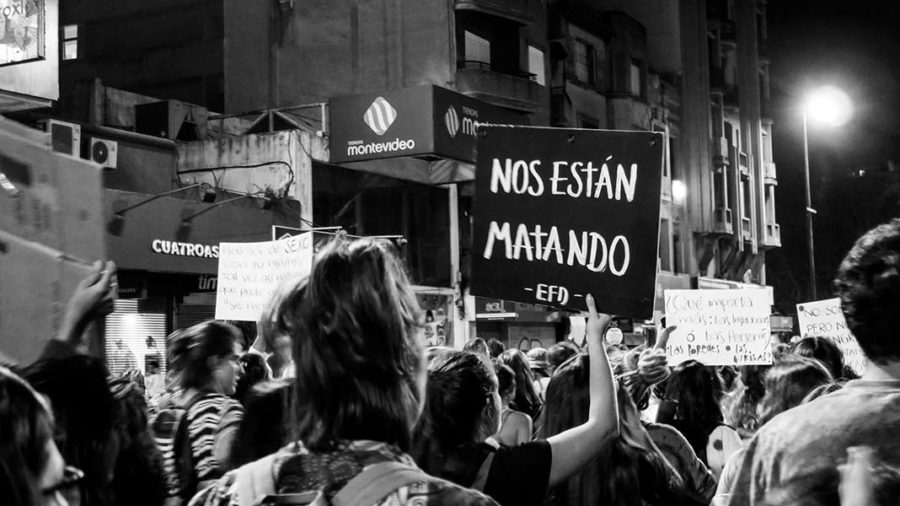The violence in Colombia has escalated in 2021. The massacres, assassination of social leaders, assassination of former combatants of the Revolutionary Armed Forces of Colombia (FARC) guerilla group continue at a horrifying rate in the country. This year, as of January 29, 17 social leaders and 5 ex-combatants of the FARC have been assassinated by paramilitary and drug trafficking groups. Additionally, more than 21 people, including 2 children, have been killed in 8 massacres registered this month.
On January 26, the Special Jurisdiction for Peace (JEP) warned that “the beginning of year 2021 has been the most violent” since the signing of the peace agreements between the former government and the demobilized FARC guerilla group in November 2016, in Havana, Cuba. In a report, the JEP pointed out that between January 1 and 24, 2021, 5 peace signatories were murdered, 14 social leaders were killed, 13 leaders received death threats, and 6 massacres were registered.
Highlighting the severity of the situation, the JEP further explained that the data implied that in every 5 days a demobilized guerrillero was killed, in every 41 hours a social leader was assassinated and in every 4 days a massacre was perpetrated. In this regard, the JEP called on the national government of President Iván Duque to comply with the peace agreements.
The organization also reported that between January 1 and 24, 14 armed confrontations between the public forces and different criminal groups were recorded. This is the highest figure since January 2017 and has led to the forced displacement of 57 families and 200 people.
🚨JEP alerta que el 2021 ha sido el inicio de año más violento desde la firma del Acuerdo de Paz: 14 enfrentamientos armados entre estructuras criminales y Fuerza Pública, 14 líderes sociales asesinados, 6 masacres y 5 asesinatos de excombatientes de las Farc-Ep.
🧵Sigue hilo ⬇️ pic.twitter.com/4N6BHuP03g— Jurisdicción Especial para la Paz (@JEP_Colombia) January 26, 2021
Last week, on January 21, the head of the United Nations Verification Mission in Colombia (UNMC), Carlos Ruiz Massieu, stressed that the violence against former combatants, social leaders, and human rights defenders is “the most serious threat to peace” in Colombia. Massieu called on the Colombian government to protect these people and issued some recommendations to address the increasing violence, such as the strengthening of the reincorporation process and dialogue with the affected groups.
On January 28, the Common Party (Partido Comunes), formerly known as the Common Alternative Revolutionary Forces (FARC) party, reiterated their commitment to peace and thanked the Colombian society, the international community and the JEP for supporting the implementation of peace agreements. The Common Party, which emerged after the disarmament of the guerilla group as a part of the peace agreements, on January 24, decided to change its name to fight the socio-political stigma associated with its acronym: FARC.
The Common Party has repeatedly condemned Duque’s administration for its lack of will to comply with peace agreements and its indifference in response to their extermination. Since the signing of the peace agreements, 254 former FARC combatants, who were in the reincorporation process, have been killed.
Likewise, several social, Indigenous, Afro-descendant and human rights organizations have denounced Duque’s far-right regime for its reluctance to implement measures to stop these acts of violence and dismantle the illegal armed groups operating in the country.
Colombia has seen a major increase in political violence and systematic extermination since Duque took office in 2018. According to the Institute of Development and Peace Studies (INDEPAZ), 1,133 social leaders have been assassinated since the signing of peace agreements and 734 of these assassinations occurred under the rule of president Duque (August 7, 2018-January 27, 2021).
Fermiliano Meneses
Desaparecido el 15/01/2021
Encontraron su cuerpo el 27/01/2021
Argelia, Cauca@IvanDuque van 16 líderes sociales asesinados en el 2021, 1.132 desde la firma del acuerdo y 733 durante este gobierno (7 agosto 2018 – 27 de enero 2021). pic.twitter.com/jzwdSbExqY— 🇮 🇳 🇩 🇪 🇵 🇦 🇿 (@Indepaz) January 28, 2021





